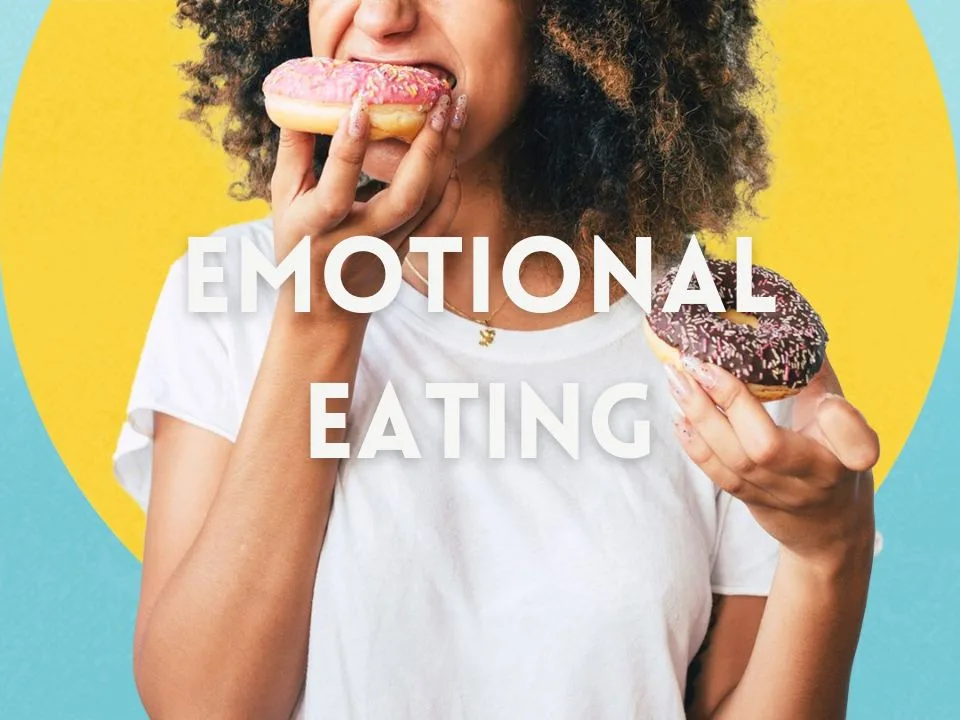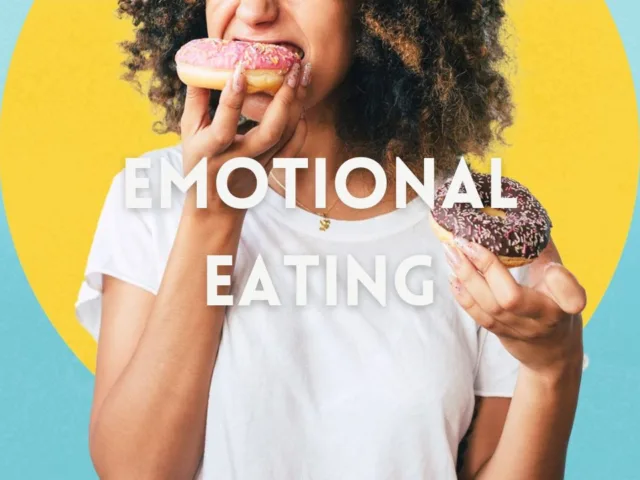
In the realm of human behavior, the relationship between emotions and eating habits is a complex and often misunderstood phenomenon. Emotional eating, characterized by the consumption of food in response to emotional triggers rather than physical hunger, is a prevalent issue affecting individuals worldwide.
This article delves into the intricate dynamics of this behavior, exploring the various factors that contribute to its development and perpetuation.
Understanding Emotional Eating

Image via HSS
Emotional eating transcends the simple act of nourishment, as it involves using food as a coping mechanism for dealing with emotional distress, stress, or other psychological factors. Unlike eating in response to physiological hunger cues, this kind of coping mechanism is driven by a desire to soothe negative emotions or enhance positive ones.
Factors Influencing Emotional Eating
1. Psychological Factors

Image via Be Psychology Center
- Emotional Distress: Individuals may turn to food as a means of comfort or distraction when experiencing negative emotions such as sadness, anxiety, or loneliness.
- Stress: High levels of stress can trigger cravings for sugary or high-fat foods, as the consumption of these foods may temporarily alleviate stress by stimulating the release of feel-good hormones like serotonin.
- Trauma: Past traumatic experiences or unresolved emotional issues can lead to maladaptive coping mechanisms, as a way to numb or escape from painful memories or feelings.
2. Environmental Factors

Image via iStock
- Food Environment: Accessibility to palatable and highly processed foods, coupled with societal norms that promote indulgence in comfort foods, can contribute to the development of emotional eating habits.
- Social Influences: Social gatherings, celebrations, or peer pressure may encourage overeating or indulgence in unhealthy foods, reinforcing emotional eating patterns.
3. Behavioral Factors

Image via iStock
- Learned Behaviors: Individuals may have learned to associate certain foods with comfort or reward from childhood experiences or cultural influences, leading to habitual emotional eating responses.
- Lack of Coping Skills: Insufficient emotional regulation skills or coping mechanisms for managing stress or negative emotions may result in turning to food as a default coping strategy.
Impact & Consequences
This behavior can have far-reaching consequences on an individual’s physical health, mental well-being, and overall quality of life. Chronic emotional eating is associated with weight gain, obesity, nutritional deficiencies, and an increased risk of developing various health conditions, including diabetes, cardiovascular disease, and depression.
Moreover, the cycle of this behavior can perpetuate feelings of guilt, shame, and low self-esteem, further exacerbating the emotional distress that initially triggered the behavior.
Addressing The Problem
Breaking free from these patterns requires a multifaceted approach that addresses the underlying psychological, environmental, and behavioral factors contributing to the behavior. Strategies may include:
- Developing mindfulness and awareness of emotional triggers and hunger cues.
- Cultivating healthier coping mechanisms, such as exercise, meditation, or seeking support from friends, family, or mental health professionals.
- Building a supportive environment that promotes nutritious eating habits and discourages emotional eating triggers.
- Seeking therapy or counseling to address underlying emotional issues or trauma contributing to emotional eating patterns.
This behavior is a complex phenomenon influenced by a myriad of psychological, environmental, and behavioral factors. By gaining insight into the underlying drivers of emotional eating and implementing targeted interventions, individuals can take proactive steps towards fostering a healthier relationship with food and emotions, ultimately improving their overall well-being and quality of life.










